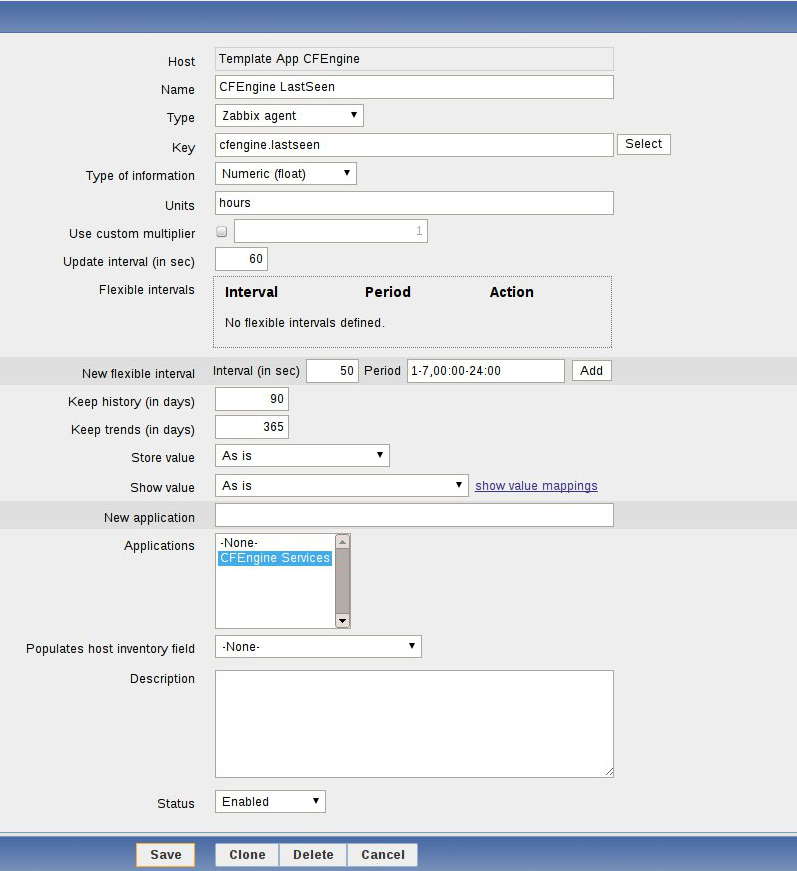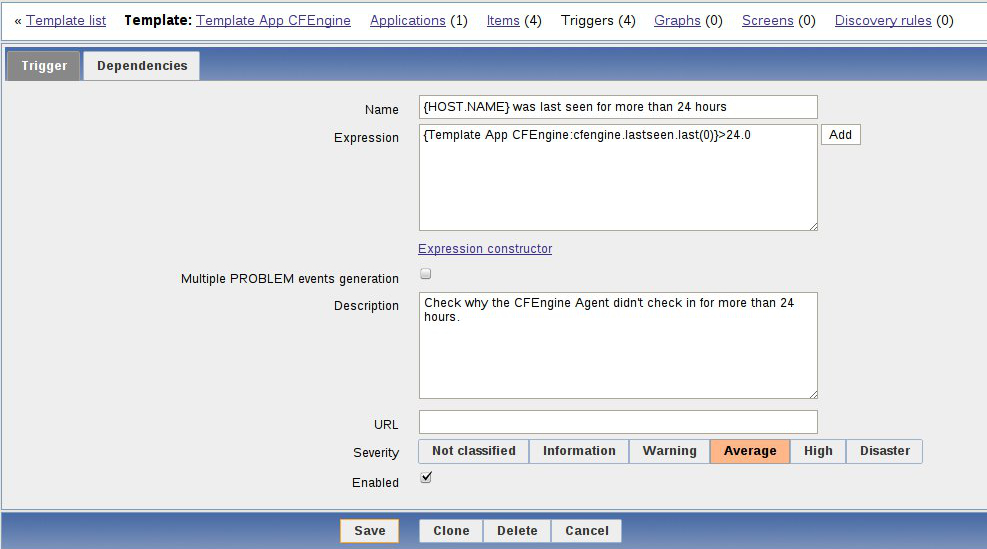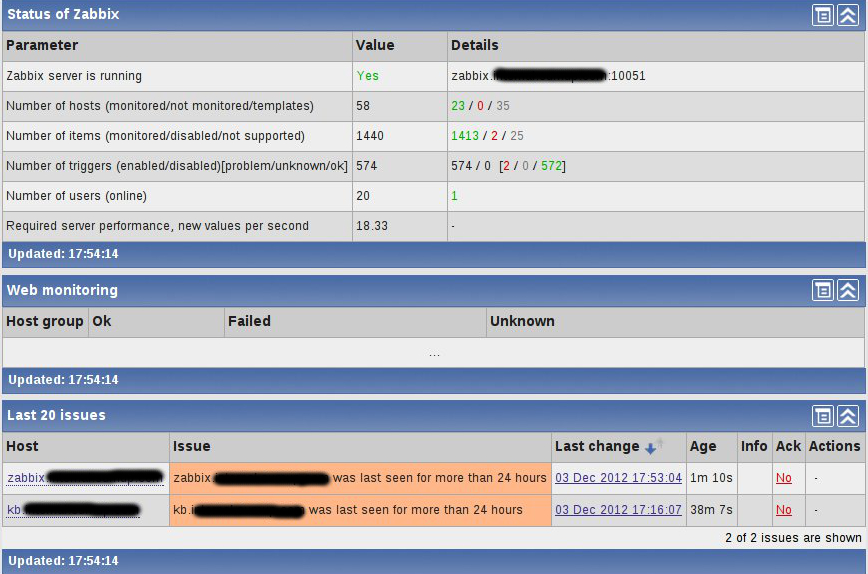CFEngine hosts availability check in Zabbix
Knowing that your CFEngine agents are complying to the promises is nice to have in your monitoring system, if not even required.
That way you can see if an Agent contains old policy files and does it comply to the policies at all.
A simple way of how this can be accomplished is to use the CFEngine’s lastseen records, which will give you information of when an Agent’s last connection to the master server has been made.
In this post I’m going to show you how to use CFEngine’s lastseen records in order to trigger an alarm in Zabbix when an Agent didn’t check-in for the more than 24 hours.
First we need to make sure that our Agents are creating lastseen reports. If you have followed the CFEngine Handbook you probably already have this configuration in place, but I’ll post it here as well for quick reference.
Please note that this configuration is not just FreeBSD related as the handbook’s title suggests, but you can also use it under GNU/Linux as well. And here’s the contents of cf-report.cf file:
#########################################################################
# #
# cf-report.cf - Cfengine 3 Reports #
# #
#########################################################################
body reporter control {
reports => { "performance", "last_seen", "monitor_history" };
build_directory => "$(sys.workdir)/reports";
report_output => "text";
}
Reports will go to the reports directory in the CFEngine’s work directory, which is in /var/cfengine/reports. In order to generate the reports, you need to execute cf-report(8). To make sure that reports are generated on hourly basis I choose to add a cron job for it in /etc/crontab, which looks like this:
5 * * * * root /var/cfengine/bin/cf-report
That was for the CFEngine part. Now we need to do some Zabbix configurations. First we will add a new Zabbix UserParameter that will take care of getting the hours since last connection to the master policy server was made.
Create a new file under /etc/zabbix/zabbix_agentd.d/cfengine.conf (this assumes that your zabbix_agent.conf file includes the /etc/zabbix/zabbix_agentd.d/ directory). The contents of the cfengine.conf file are shown below:
# CFEngine keys
UserParameter=cfengine.lastseen,sed -e 's/.*(\(.*\)).*/\1/g' /var/cfengine/reports/lastseen.txt
Restart the Zabbix Agent:
$ sudo zabbix-agent restart
If access to /var/cfengine/reports is restricted (recommended) you should make sure the Zabbix user can get the report file, e.g. by allowing zabbix user to run sudo(8) sed on /var/cfengine/reports/lastseen.txt file.
Now it’s time to add a new item to our Zabbix server. If you’ve seen the Monitoring CFEngine Services in Zabbix post, we’ve created a template CFEngine App and added a few items to it for monitoring the CFEngine services.
Now we are going to extend our template app and add the CFEngine LastSeen item to it. You might want to check the Monitoring CFEngine Services in Zabbix post for more details on the template app we’ve created.
Now, login to your Zabbix server and navigate to Configuration -> Templates and select the Template App CFEngine template we’ve created previously. Next, go to the Items tab and create a new item. The new item is called CFEngine LastSeen, which uses the key cfengine.lastseen and the type of information is set to Numeric(float). See the screenshot below:
Now lets add a trigger for the newly added item. Navigate to the Triggers tab and create a new trigger. On the screenshot below you can see we are defining a trigger for our CFEngine LastSeen item which will go into alarm if a host hasn’t checked-in for more than 24 hours.
Save the trigger and that was it. From the example screenshot below you can see that Zabbix properly catches the hosts that haven’t checked-in for more than 24 hours.
And that was it. Next time I will try to add a few more Zabbix posts which will deal this time with package management and monitoring, so stay tuned! :)


